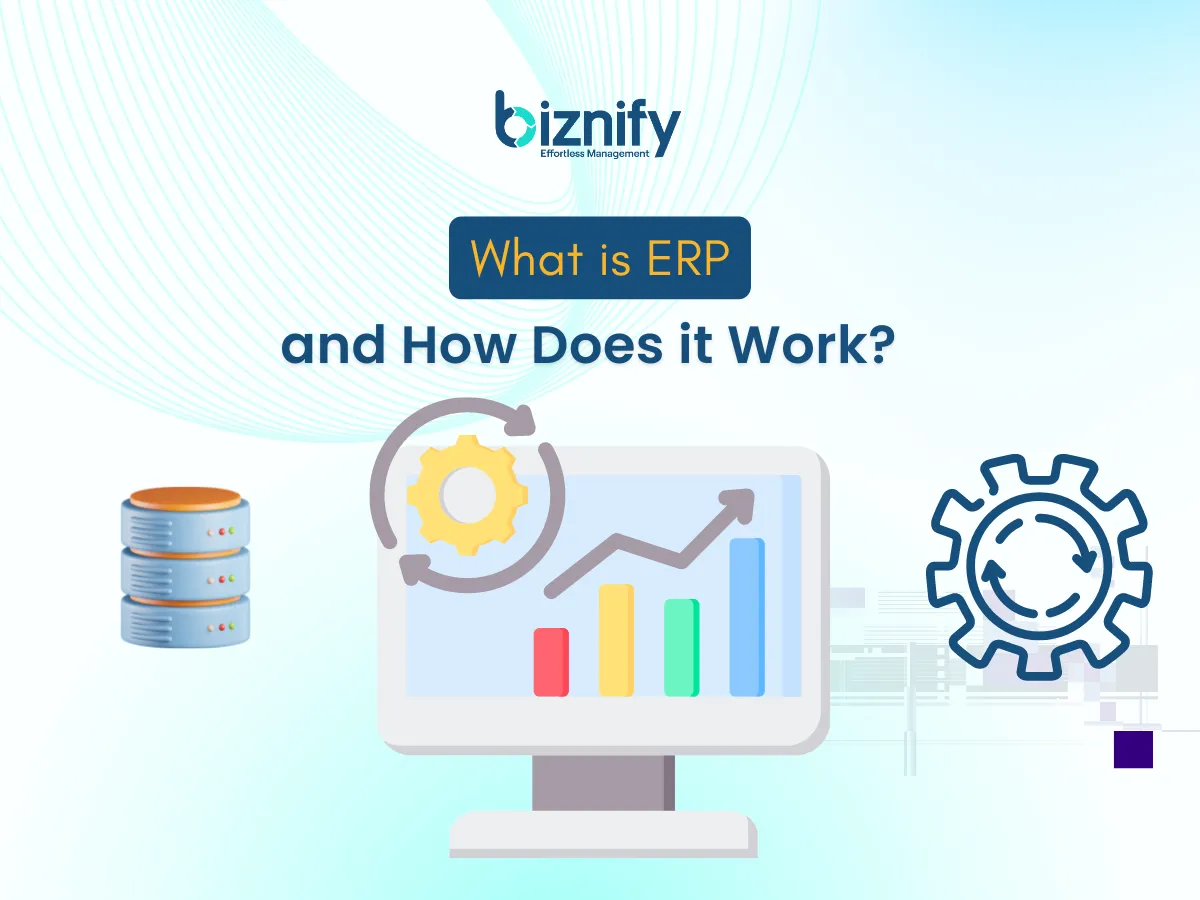
Ever wonder how big businesses keep everything running smoothly, even when they’re juggling hundreds of tasks at once?
The secret often lies in something called ERP, or Enterprise Resource Planning. ERP is the backbone of modern businesses, helping them manage everything from finances to supply chains with ease. But what exactly is ERP, and how does it work?
In this article, we’ll break down the basics of ERP, explain how it can transform the way your business operates, and and explain why businesses of all sizes now depend on it to stay organized and competitive.
Whether you're a small business owner looking to organize and manage your processes or part of a large enterprise seeking to improve efficiency, understanding ERP is key to staying competitive in today’s fast-paced market.
Here’s how ERP systems actually work and what they mean for your business.
ERP stands for Enterprise Resource Planning — a type of software that helps businesses manage their day-to-day operations using one shared system.
Instead of using separate tools for accounting, inventory, human resources, and supply chain tasks, ERP brings everything together in one place. It gives your team a clear view of what’s happening across the business and keeps all departments connected.
Why does this matter? Because many businesses, especially in sectors like manufacturing, retail, or logistics, deal with a lot of moving parts. Without a system to coordinate everything, teams end up wasting time switching between tools or dealing with data mistakes.
With an ERP system, you reduce that clutter. You get faster access to information, make better decisions, and save time. Whether it’s tracking inventory levels or running payroll, everything runs smoother when it's all connected.
ERP isn’t just a tool—it’s how modern businesses stay organized, avoid slowdowns, and keep teams working toward the same goals.
ERP connects all parts of your business into one unified system, making real-time information easily accessible. Think of it as the central hub where every department shares data seamlessly.
For example, in a retail company, when a sale is made, the ERP system instantly updates inventory, adjusts sales records, and updates financials, all from one dashboard. This integration reduces errors, boosts efficiency, and keeps your business running smoothly.
With ERP, you gain visibility and control, helping you make informed decisions and respond quickly to changes. It's like having the brain of your business in one powerful system.
Boosts Efficiency: ERP automates routine tasks, freeing up time for your team to focus on strategic goals and speeding up daily operations.
Improves Data Accuracy: Centralized data means fewer errors, ensuring everyone works with the same, up-to-date information.
Enhances Collaboration: With shared access to data, departments work together seamlessly, breaking down silos and improving teamwork.
Flexible setup: ERP systems can be expanded as your business adds new teams or operations.
Not all ERP systems are built the same. Depending on how your company operates, you’ll need to decide which type of setup makes the most sense. Some businesses prefer full control and manage the software themselves.
Others choose a more flexible option that runs online with less maintenance. Let’s look at the two most common ERP setups — on-premise and cloud-based — and how they differ.
On-premise ERP: Think of this as owning your own ERP software. You install it on your company's servers, and you're responsible for maintaining and updating it. It's like having your private cloud.
Cloud-Based ERP: With cloud-based ERP, you access the software through the Internet. The vendor hosts the software and handles updates, maintenance, and security. It's like renting the software instead of buying it.
Choosing between on-premise and cloud-based ERP depends on your company's size, budget, and specific needs.
If you're in a specific industry, like manufacturing or retail, there are ERP systems built with features specific to industries like retail, manufacturing, and services. These industry-specific ERPs come with pre-configured features and workflows that can streamline your operations and improve efficiency.
Both on-premise and cloud-based ERP systems have their advantages. The best choice for your business depends on your specific requirements and priorities. Consider factors like cost, scalability, security, and customization when making your decision.
Implementing an ERP (Enterprise Resource Planning) system is a complex process that requires careful planning and execution. Below is a step-by-step guide to successfully implementing an ERP system:
Before diving into ERP implementation, it's crucial to have a solid plan in place. Define your goals and expectations. What do you hope to achieve with ERP? Are you looking to improve efficiency, reduce costs, or enhance customer service? A clear understanding of your objectives will guide your implementation process.
One of the great things about ERP systems is their flexibility. They can be customized to fit your specific business needs. Whether you're a manufacturing company, a retailer, or a service provider, there's an ERP solution that can be tailored to your industry and processes.
ERP systems are often the hub of your business operations. To get the most out of it, you'll need to integrate it with your existing tools and systems. This might include connecting your ERP to your accounting software, CRM, or inventory management system.
A successful ERP implementation depends on your employees' ability to use the system effectively. Investing in comprehensive training will ensure that your team is equipped to leverage the full potential of ERP. From data entry to reporting, training will help your employees become proficient users.
ERP implementation can be challenging, but with proper planning and execution, you can avoid common pitfalls. Some potential challenges include:
Resistance to change: Employees may be hesitant to adopt a new system. Address their concerns and emphasize the benefits of ERP.
Data quality issues: Ensure that your data is accurate and consistent before migrating it to ERP.
Overcomplicating the process: Keep your implementation focused on key objectives and avoid unnecessary complexity.
By following these steps and addressing potential challenges, you can set up ERP in a way that makes your day-to-day work simpler and more coordinated.
Before you start shopping for an ERP system, it's essential to have a clear understanding of your business's needs. Ask yourself:
What are your top business priorities?
What challenges are you trying to address with ERP?
What features are most important to you (e.g., finance, HR, inventory management)?
Once you know your requirements, it's time to start comparing ERP vendors. Here are some key factors to consider:
Features: Does the vendor offer the features you need to streamline your business processes?
Support: How responsive is the vendor's customer support?
Cost: What is the total cost of ownership, including implementation, maintenance, and ongoing fees?
Scalability: Can the ERP system grow with your business?
Integration: Does the ERP integrate seamlessly with your existing systems?
When budgeting for ERP, don't forget to factor in hidden costs that can significantly impact your overall investment. These may include:
Customization: If you need extensive customization, it can add to the cost.
Data migration: Moving your data from your current systems to ERP can require additional time and resources.
Training: Investing in employee training is essential for a successful implementation.
Ongoing maintenance: Factor in the costs of ongoing maintenance, upgrades, and support.
By carefully considering your needs, comparing vendors, and budgeting for hidden costs, you can make an informed decision and select the ERP system that best suits your business.
The future of ERP (Enterprise Resource Planning) systems is being shaped by rapid technological advancements and changing business needs. As organizations strive to stay competitive, they need to adopt features that make their ERP systems faster, more accurate, and easier to use.
Here’s an overview of the key trends and innovations that will define the future of ERP:
The world of ERP is constantly evolving, and emerging technologies like artificial intelligence (AI) and machine learning are changing how companies handle tasks like planning, inventory, and reporting. From predictive analytics to automated workflows, these technologies will enhance efficiency, improve decision-making, and drive innovation.
Businesses in Bangladesh are increasingly recognizing the value of ERP systems in streamlining operations, improving customer service, and gaining a competitive edge. Biznify, a leading ERP provider, is at the forefront of this trend, offering tailored solutions to meet the unique needs of Bangladeshi businesses.
In today's rapidly changing business landscape, ERP is no longer a luxury but a necessity. With the rise of digital transformation, businesses need to adapt and innovate to stay competitive. ERP systems can help you:
Improve efficiency: Improved processes, reduce manual tasks, and optimize resource allocation.
Enhance decision-making: Gain valuable insights from data-driven analytics.
Improve customer satisfaction: Deliver better products and services through improved customer relationship management.
Scale your business: Prepare your organization for growth and expansion.
Don't wait for your competitors to catch up. Now is the time to embrace ERP and help you stay organized, save time, and compete with confidence.
– Contributor Review
ERP software helps businesses manage core activities like finance, inventory, HR, and sales in one system, making operations more organized and efficient.
Yes. Cloud-based ERP systems like Biznify are affordable and flexible for SMEs in Bangladesh, helping them scale without heavy IT investment.
ERP implementation can take 1 to 6 months depending on business size, module count, and customization needs.
Some benefits include better decision-making, reduced manual work, improved accuracy, real-time data, and faster collaboration between departments.
Look for ERP software that fits your industry, supports local regulations, offers reliable support, and integrates with your existing tools.
ERP systems have the potential to transform your business. Organizing operations, improving efficiency, and giving you clear data to track performance and spot problems early, and stay competitive. Whether you're a small business or a large corporation, there's an ERP solution in Bangladesh that can benefit your organization.
Ready to explore ERP for your business?
Take the next step by researching different ERP vendors, consulting with experts, or requesting a demo. Biznify, a leading ERP provider, can help you understand how ERP can benefit your specific needs and guide you through the implementation process.
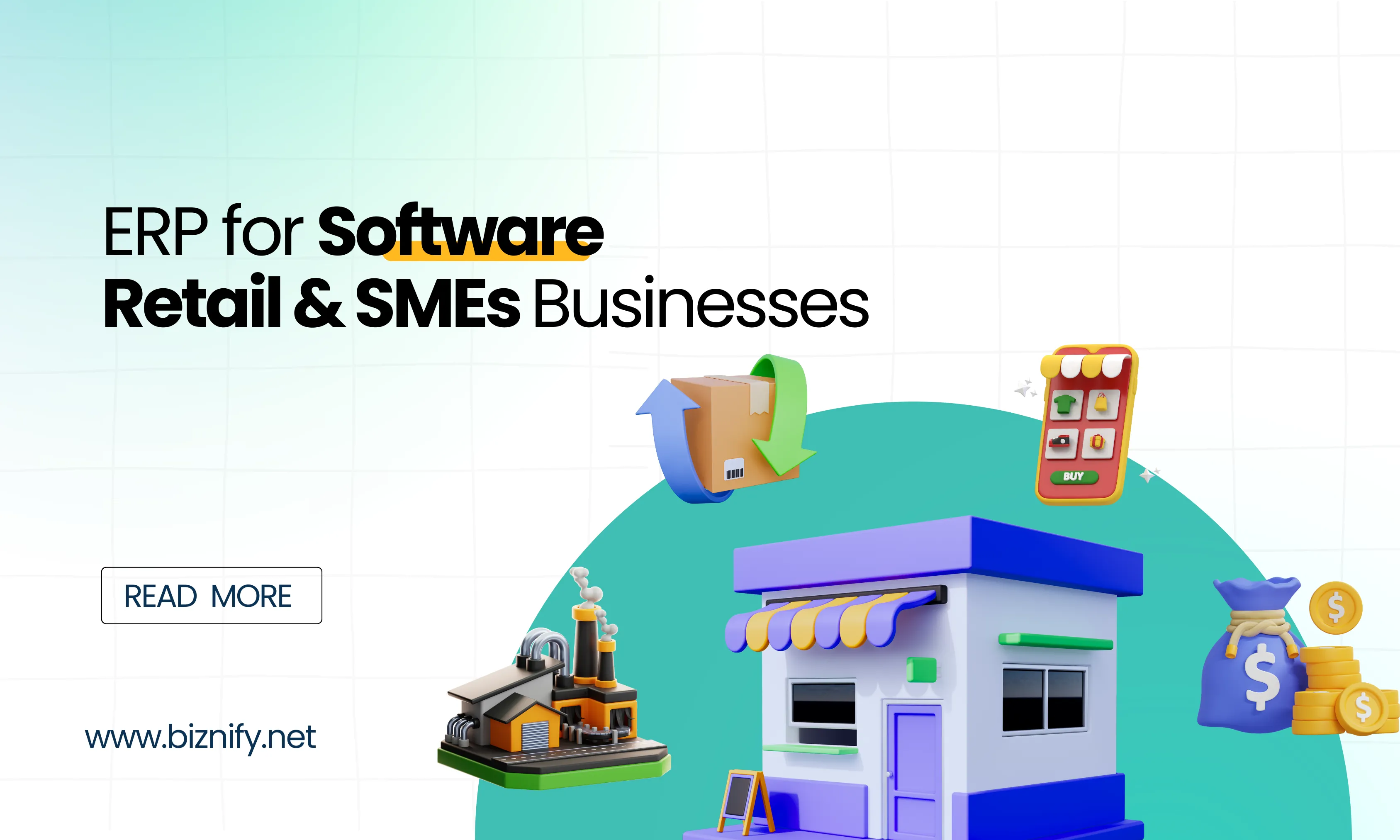
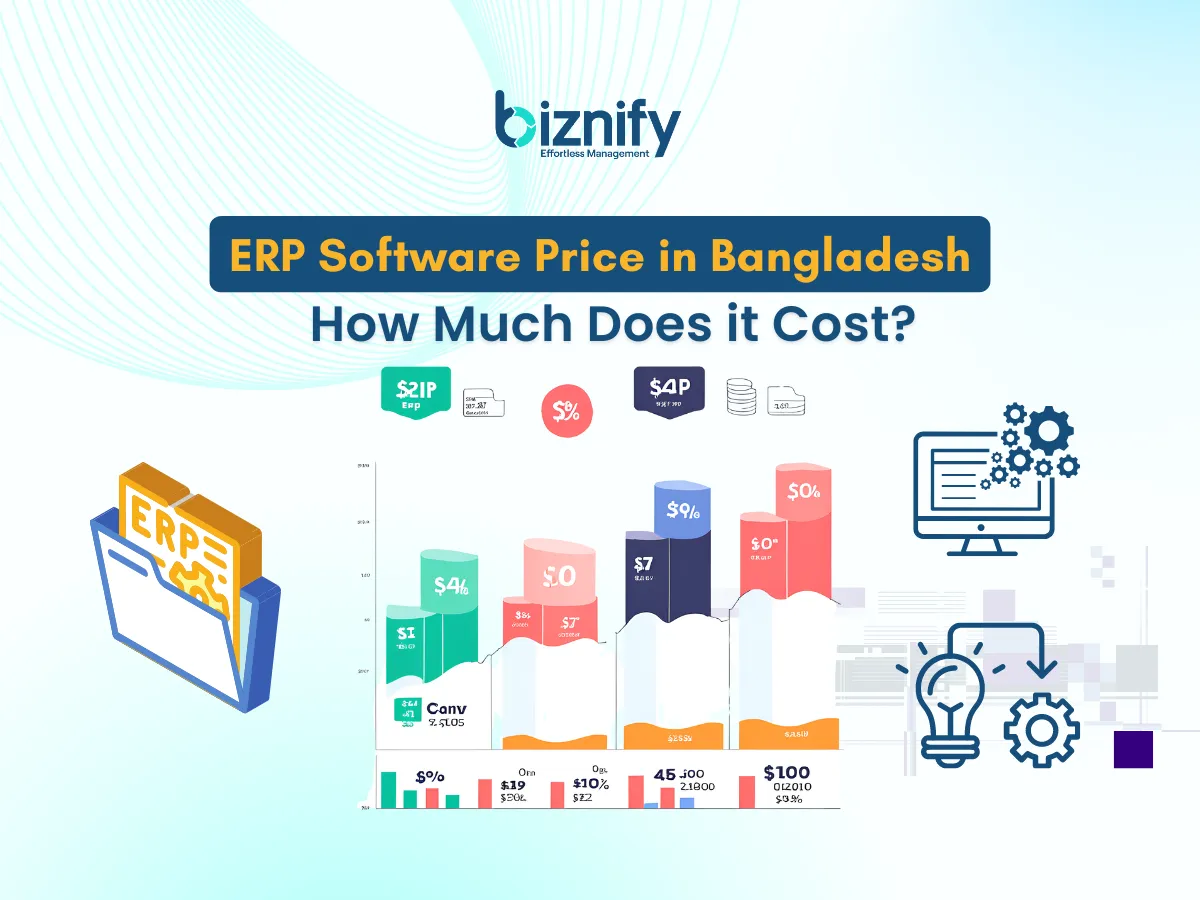
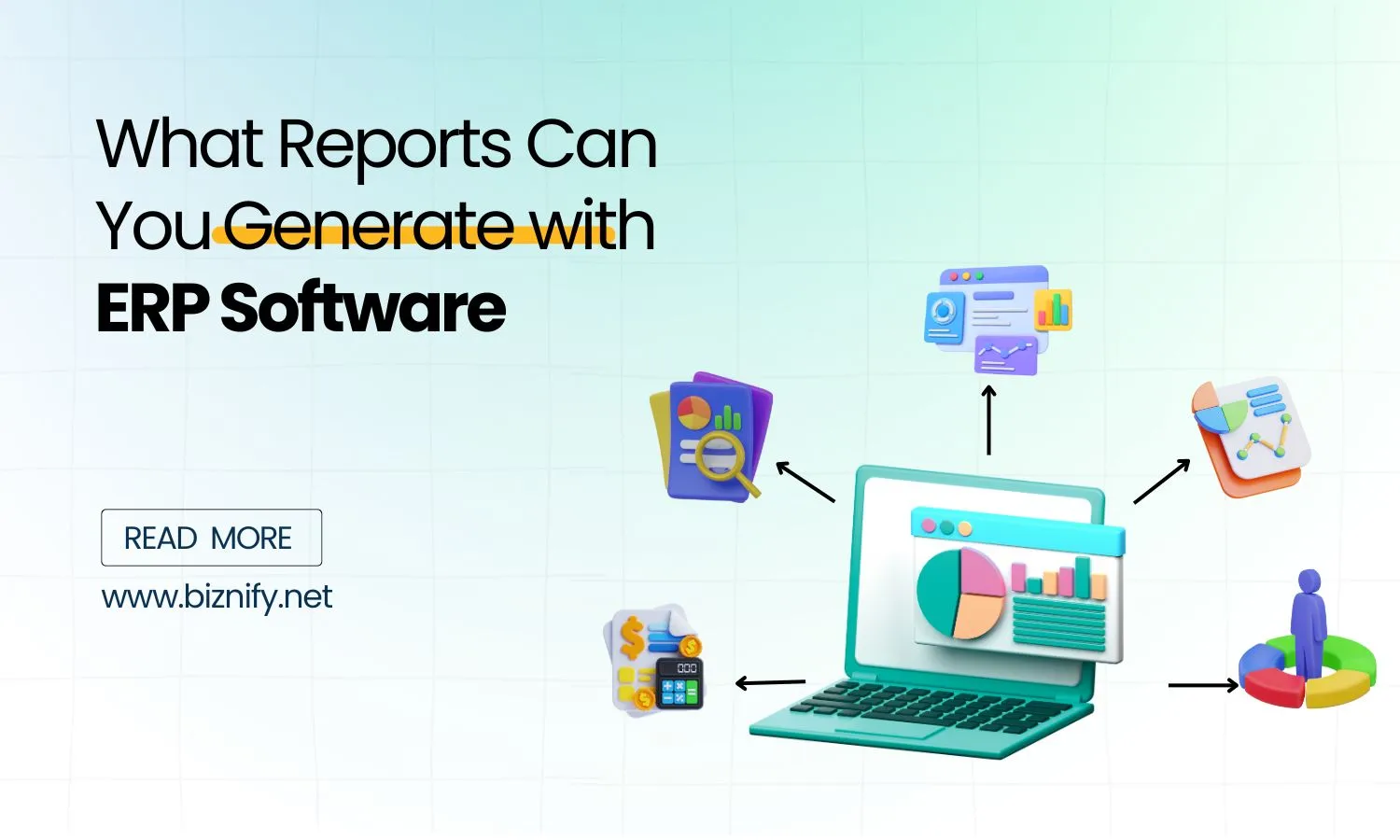
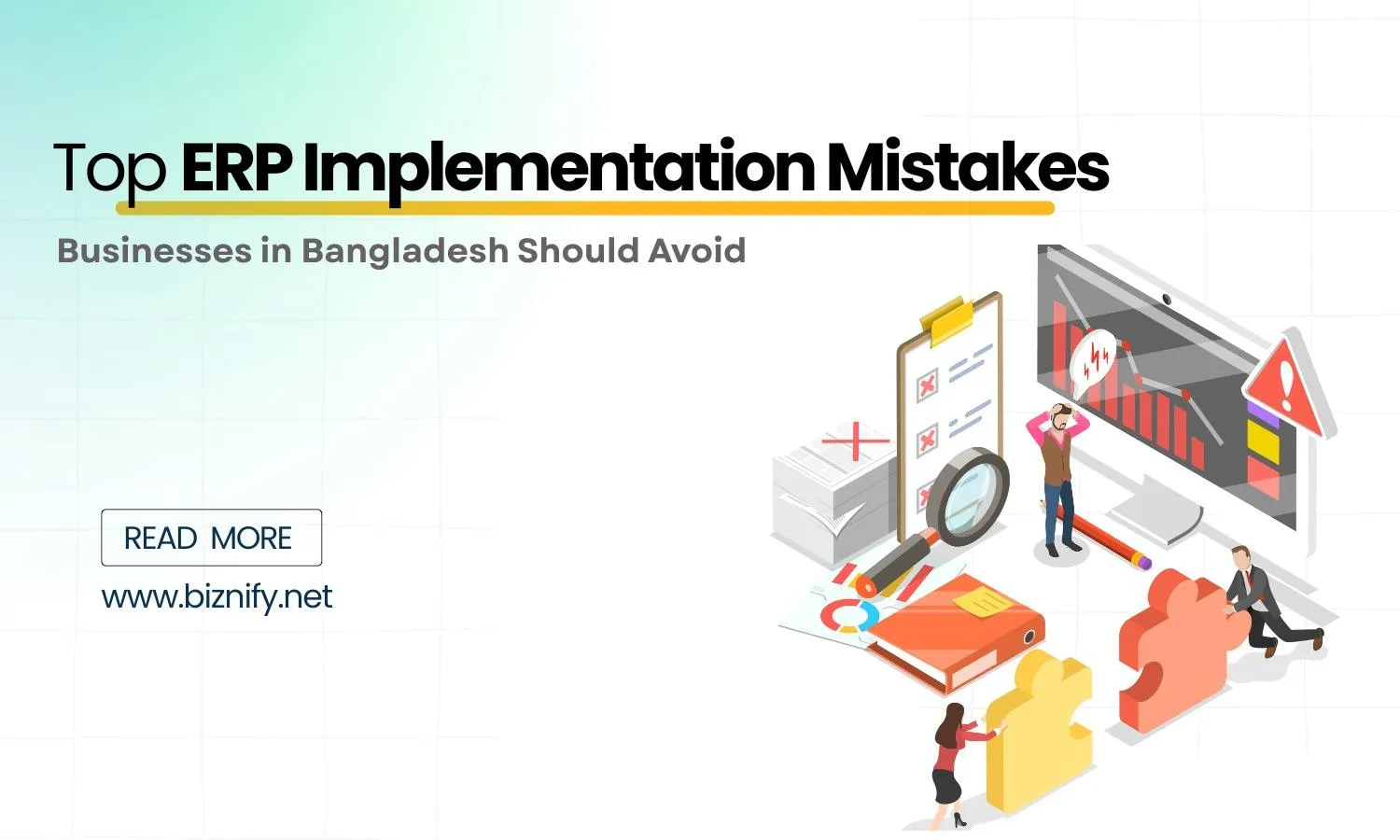
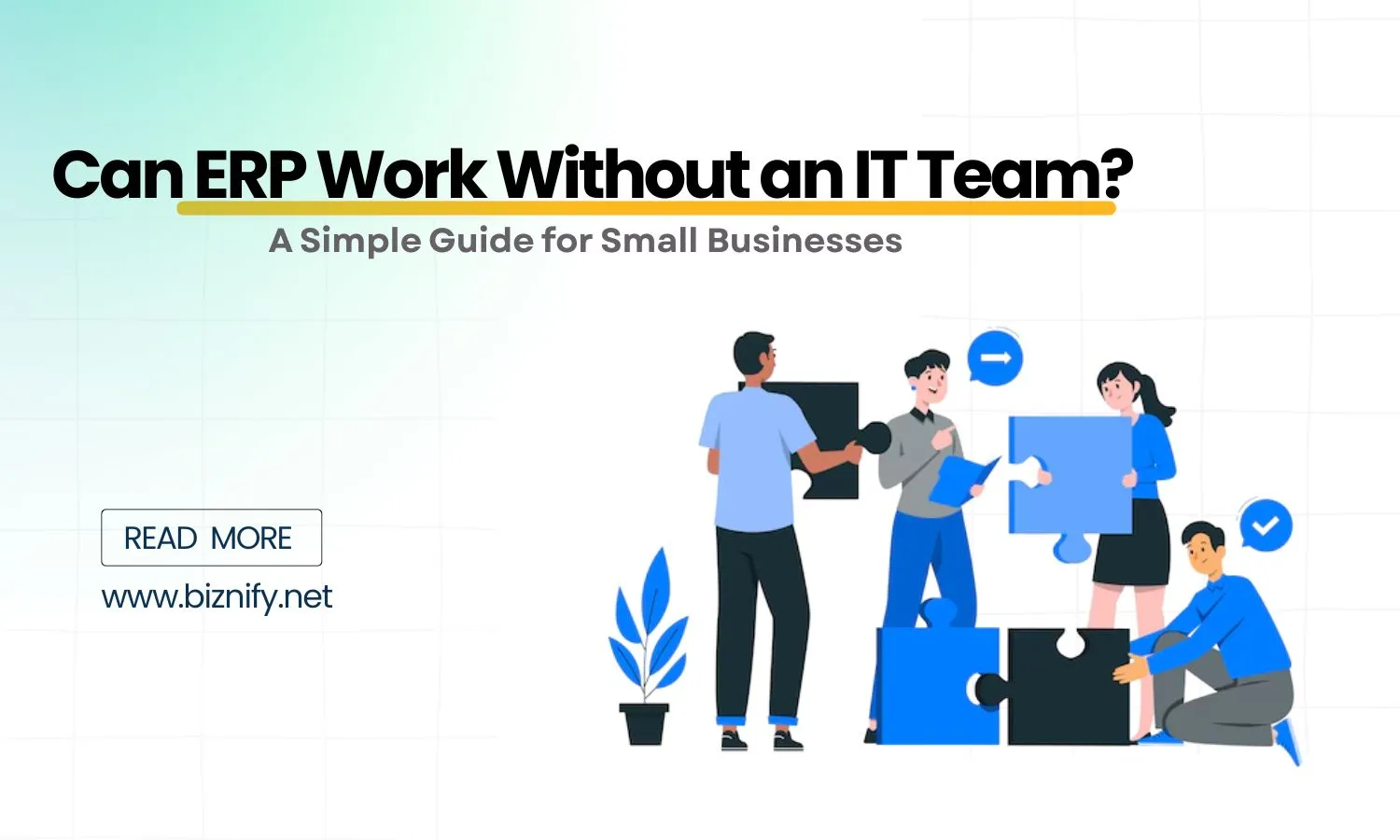
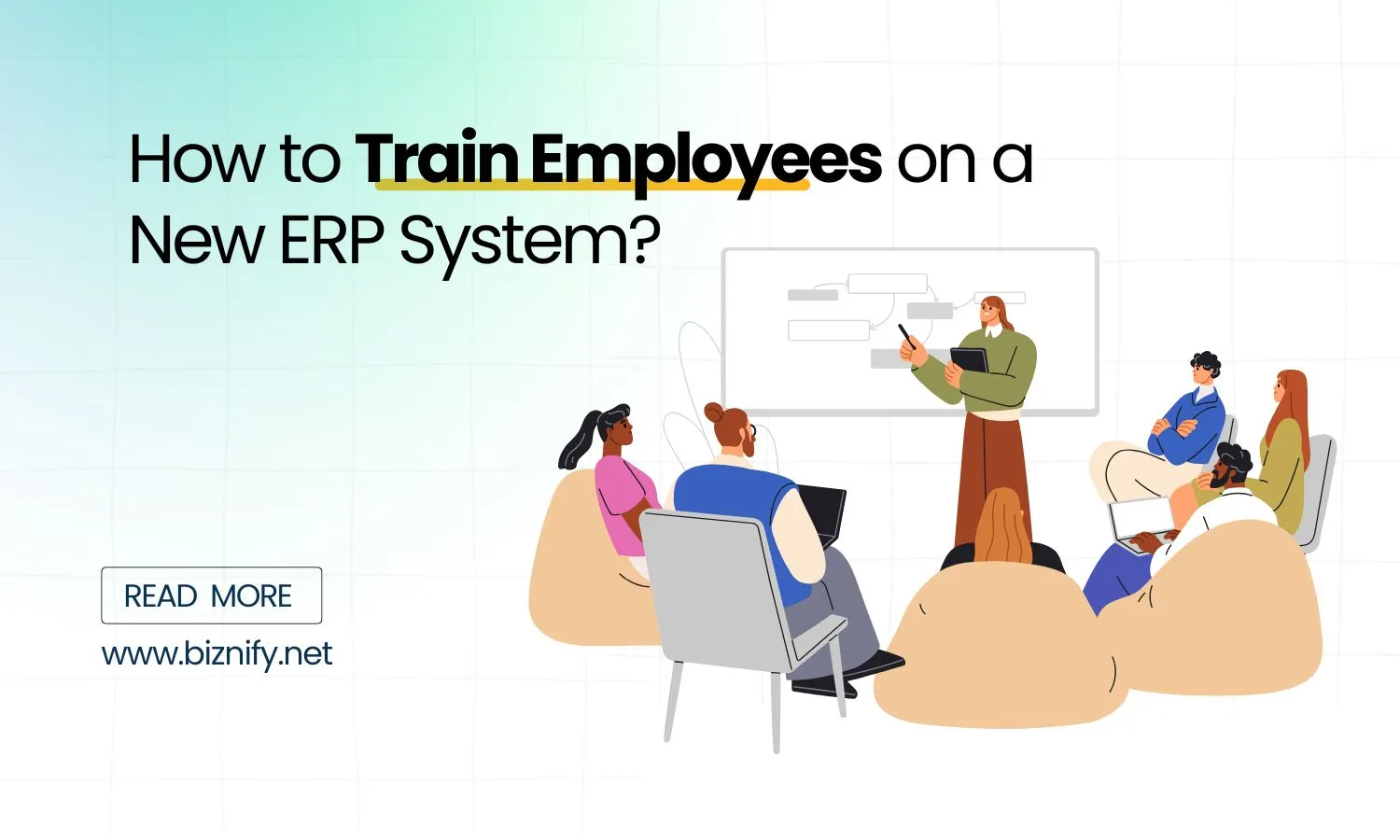
Just exploring ERP or unsure which modules you need? The Biznify team’s here with straight answers.